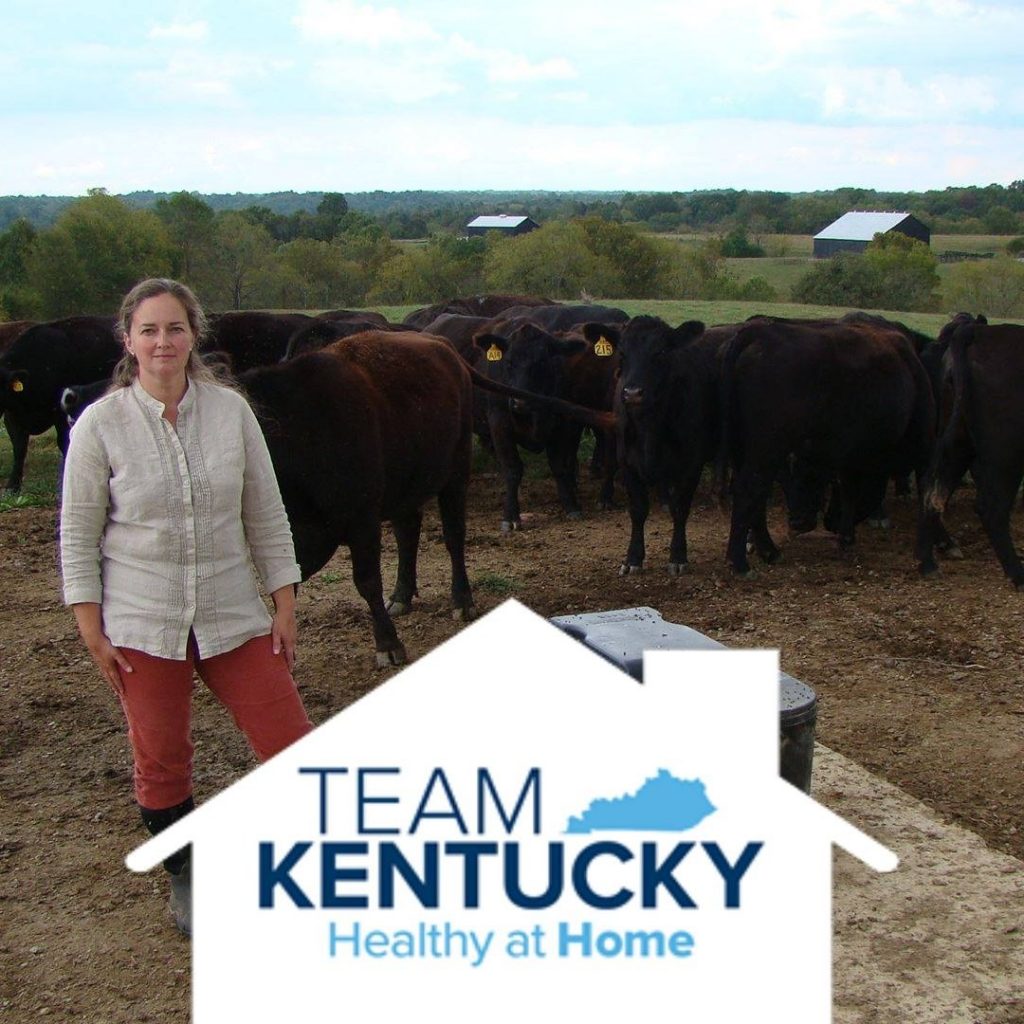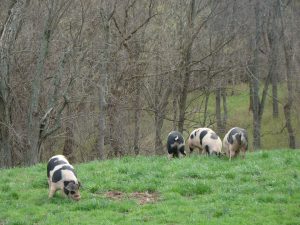
Chris Poore reached out to an old friend and farming mentor, Roni Hils. Roni’s husband, Jeff, was Chris’ college roommate and childhood friend. But later in life, Roni became a mentor to Chris as he started a farm in Salvisa, Kentucky. Today, Chris lives in Lexington and works for the Daily Yonder and Rural Assembly as an editor and marketing consultant; he sold his farm a few years ago. Roni raises grass-fed beef, chickens, turkeys, heritage hogs and sheep on a certified organic farm in Spencer County, Kentucky.
Chris: How are you? How is all of this affecting you and your work?
Roni: When I realized this would be a world event, my first instinct was to grow: buy seeds, take inventory of livestock, plant early, check on status of things in process, fill the incubator with eggs. In other words to produce something. Specifically, food. This should not be a surprise to me since I am a third generation farmer and I believe it is somehow written on my genes. I was a bit surprised at how much this impulse was about producing “for others.”

I am not a doctor, nurse, service worker, or truck driver and I wondered how am I going to serve through this time. I guess the answer was, the same as I always have, produce food. I am not only responsible for my family and hundreds of animals, but I feel a responsibility for the food security (or at least my small part of it) of families who count on me.
But I’ve been looking for ways to distill and streamline my process since all this began. Ways to insulate against disruption, be it weather, political conflict, or pandemic. I am a livestock farmer raising grass-fed beef, pastured hogs, chickens, and eggs. For much of that production, I am dependent on others since we don’t produce feed on our farm. What we do produce is a lot of healthy soil and grass, and in our temperate climate that is usually a sure bet. We’ve worked to make our exclusively grass-fed beef a closed circle: calves are born here, graze and grow here, and spend every day here up until their last. From there, the beef goes directly from me to local families. I’m feeling that I need to focus more than ever on this foundation of farm to family.
 We need support for local food infrastructure, in as many ways as possible. Part of my motivation and reward is seeing what we grow being valued by families in my own community. It felt different than ever before as I got calls for orders when we all realized this pandemic was serious, and when I dropped off a delivery at a customer’s house and she expressed such relief that she could count on us, my farm, for food. Without a local food system we have no fall back position and no starting point to rebuild if we ever have a failure of large scale growing and distribution. Local farms only provide a tiny amount of our food now, but decentralization would build back strengths and flexibility of our farming systems for a changing world.
We need support for local food infrastructure, in as many ways as possible. Part of my motivation and reward is seeing what we grow being valued by families in my own community. It felt different than ever before as I got calls for orders when we all realized this pandemic was serious, and when I dropped off a delivery at a customer’s house and she expressed such relief that she could count on us, my farm, for food. Without a local food system we have no fall back position and no starting point to rebuild if we ever have a failure of large scale growing and distribution. Local farms only provide a tiny amount of our food now, but decentralization would build back strengths and flexibility of our farming systems for a changing world.







